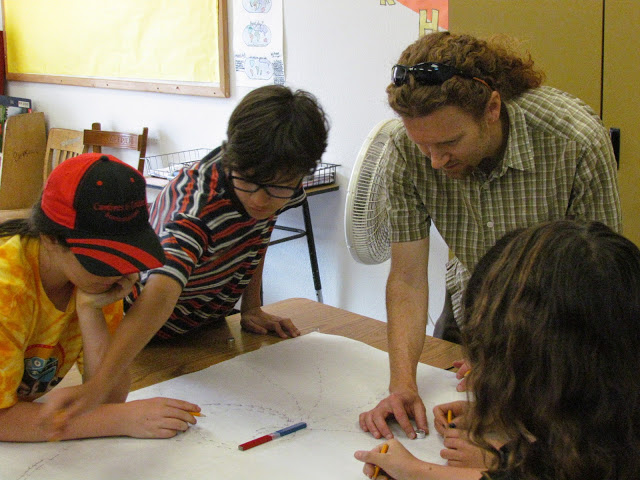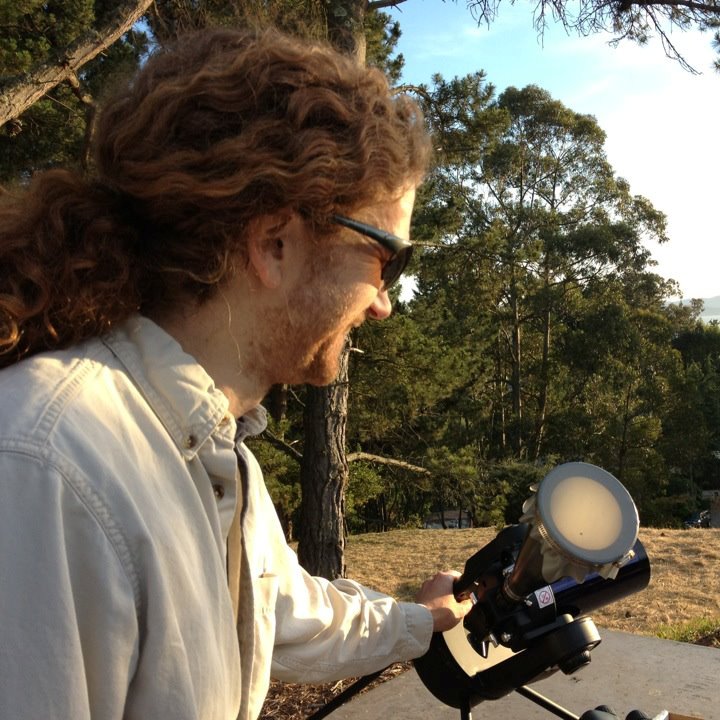From Space Kid to Geophysicist
May 2015
As a child, Matt Fillingim, stayed up late to watch the first close-up photos of Neptune sent back to Earth by Voyager 2 and his fate was sealed. Now Matt is a researcher at the Space Sciences Laboratory at UC Berkeley and shares his love of space with students through BASIS.

In addition to his research, Matt has been actively involved with science education outreach, and has been volunteering with BASIS for nearly 10 years, making him one of BASIS’s longest-running volunteers. Since 2010, Matt has made classroom presentations to over 1,500 students. This year alone, with the help of teaching partners, he has presented lessons to nine middle school classes during two full day sessions at local middle schools.
Matt began volunteering with BASIS (formerly CIC) in 2005, presenting the lesson “Lunar Dance,” a lesson about the phases of the moon, to young elementary school students. In 2008, Matt transitioned to volunteering with middle school students. With the help of colleagues, Darlene Yan and others at the Space Sciences Laboratory’s Center for Science Education, he first developed and taught: “Solar Winds” and later adapted this into a new lesson called “Magnetic Mystery Planets.” Both lessons explore magnetism in space, how it is measured, and why it is important. Today, Matt continues to work with middle school students and teachers, bringing the mystery of outer space and the magnetic forces that control it into the classroom. While he says that it can be difficult to switch gears from the technical language of his profession, he contends that sharing his science with students is both critical and refreshing.

“All day long, scientists think and talk to each other with lots of jargon. To talk to students you have to try to talk without the jargon,” Matt says. “So I have to go back to the basics and think about what it all means on a more fundamental level. Sometimes that’s challenging, but I think it can help us (scientists) get a deeper understanding of what we’re doing, why it’s important, and how it fits into the bigger picture.”
Matt’s current presentation, “Magnetic Mystery Planets,” is consistently met with glowing feedback from teachers and students alike. “The workshop was one that was content-rich in so many different ways,” said an 8th grade Piedmont Middle School teacher. “I have already found several ways to incorporate the work we did into lessons and discussions we have had and will have.” Students call his presentation “fun,” “helpful,” “interesting” and expressed the desire for him to come back and present even more.
In addition to BASIS, Matt has volunteered at Oakland Unified School District’s Dinner with a Scientist, events and has gone to elementary school classrooms on his own to talk about planetary atmospheres and their differences. Matt also does science outreach education with adults, volunteering at several NightLife events at the California Academy of Sciences, and giving lectures at local astronomical societies and the Science@Cal Science Café about Magnetism, Space Weather, and Climate Evolution at Mars.
CRS thanks Matt Fillingim for his dedication and service to BASIS and the science community!